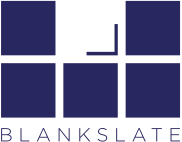Changes to the 2017/2018 federal budget now include extended parental leave, but what does this mean for BC employers?
Extended parental leave, explained
The federal Employment Insurance Act (EIA) was amended as of December 3, 2017. Under the old act, new parents could receive 12 months of Employment Insurance (EI) benefits at 55% of their average weekly insurance earnings. Now, parents can choose to take 18 months of benefits at 33% of average weekly earnings. Birth mothers are also now eligible to start maternity leave up to 12 weeks before birth, 4 weeks earlier than under the previous act. What does this mean for BC employers?
Right now: not much. So why should you care?
The BC Employment Standards Act (ESA) governs parental leave for most workers in BC. Unless you work in a federally-regulated industry (like banking, transportation, or telecommunications), the rules governing pregnancy and parental leave haven’t changed. Employers shouldn’t assume that this means they won’t be changing, though.
It’s probably going to affect you soon
We expect that the BC ESA will change to match the federal EIA, perhaps as soon as spring 2018.
What should you consider in preparation?
One point won’t be changing: parental leave is a protected leave, which means you have to hold the same (or similar) job for the individual to return to. What will you need to prepare for, though?
- Workforce planning: Do you plan to backfill the role? If so: how, for how long, and in what capacity? How long is it going to take you to find the backfill? What’s the cost to the business if the position isn’t filled? Do you have a return-to-work plan once leave is over?
- Top-up payments: If you don’t offer these, don’t worry. Many businesses can’t afford to offer top-ups, and they’re not required. If you do provide top-up pay during some or all of an EI leave period, though, the amount paid by the employer may increase, since you’re topping up from 33% instead of 55%.
- Vacation: Employees on any form of leave continue to accrue vacation. They can also use this vacation time tacked onto their leave if needed.
- Equity and bonus: The individual is still eligible to accrue equity and company bonuses. Be forewarned, though, that an employee who receives a bonus while on EI will have their EI reduced.
- Benefits: Benefits (and their associated costs) continue while an employee is on leave.
Need help preparing for extended parental leave? That’s what we’re here for!
Here’s the legal bit we have to tell you. Most of our references and resources are specific to Canada or British Columbia. We ‘re HR professionals, not lawyers. We offer this as general information, not legal advice. Each province in Canada and state in the US has different rules, regulations, and legal liability. We strongly recommend that you call an employment lawyer in your jurisdiction for expert legal advice.
